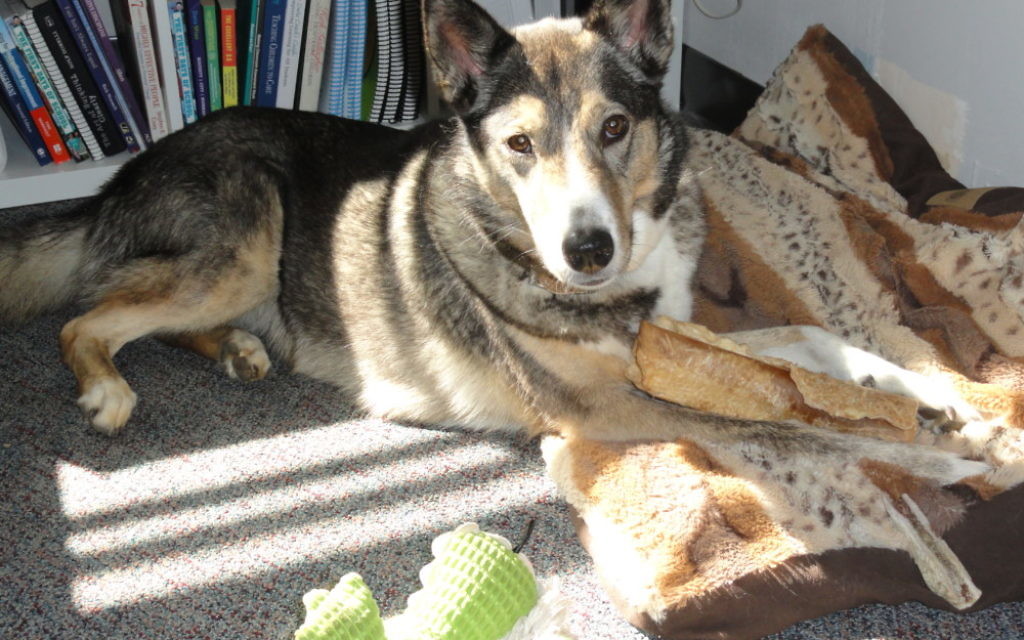Cloverleaf School: Kids on a Different Path
“I wish our school didn’t have to exist; the public system is just not serving our kids well.”
So said Jen Owen, who runs the Cloverleaf School for children with special needs.
She began the nonprofit venture in 2012 with three sets of parents who had trouble finding appropriate education for their neuro-diverse children.
Get The AJT Newsletter by email and never miss our top stories Free Sign Up
“It’s a very challenging thing to take on,” Owen said during a visit to Cloverleaf, located on Tucker’s border with Decatur at 1894 Ludovie Lane.
“What we noticed was that here in Atlanta, families had to choose between either a school that was academically rigorous or one that provided ample social support in a therapeutic environment,” she said. “Why do parents have to make that choice when so many students are fully academically capable but need some social support? So we started the school to be that middle ground. We believe our kids are capable of achieving at really high levels and can continue growing to achieve those goals.”
The school serves students diagnosed with autism, ADHD, dyslexia and other disorders and runs through the seventh grade, with plans to add the eighth grade next year. Cloverleaf has a 6-to-1 student-teacher ratio.
“A lot of kids have milder disabilities such as Asperger’s, so they don’t qualify for a ton of services. They get in a mainstream classroom and just drown,” Owen said. “Too often with special education in particular, it’s all being spoon-fed to them, but they’re human beings. They can drive their own learning a lot more than you think, so flipping that script is really empowering. You see them build so much confidence. Owning their education makes a huge difference.”
Owen, Cloverleaf’s principal and executive director, has a master’s in urban teacher leadership and a doctorate in educational leadership. “I studied elementary education in school. I taught here in the States for about a year, and then ran away for a year to New Zealand and taught there,” she said. “I was in a special character school, and their special thing was student-directed learning, which was about kids taking ownership in their learning to self-drive the process, with the teacher acting more as guide. That really impacted my beliefs about education.”
She added: “I learned specifically how to gear an educational experience to a disempowered population. It totally transfers to kids with disabilities.”
Cloverleaf started small in rented space in a church on Briarcliff Road. The name and logo were inspired by a cloverleaf interchange in the belief that everyone is on a different path.
The school, whose motto is “Quo Vadis?” (Where are you going?), is on a long-term growth plan. It has 23 students, including several from Jewish families, and aims for 28 by the end of the year. The ultimate goal is 48 students, which would be capacity.
Owen may explore the possibility of a sister campus if there is sufficient interest. The current facility is “just shy of 10,000 square feet, and we occupy about two-thirds of it, slated for occupying all by the end of 2019,” she said.
School fees cover only a portion of costs, Owen said. “We’re really working on increasing financial aid; that’s a big focus this year. We have a scholarship fund. Also, Georgia has a special needs scholarship through the S.B. 10 bill, so a lot of parents take advantage of that. We got a big grant last year for general funds, and then we got one for scholarship funds.”
She wants Cloverleaf to be an educational model, she said. “I’d love to do a teacher training program to show other educators how to do what we do and serve the students well.”
Owen stays inspired by the success stories of her students and the horror stories of what they experienced beforehand. “It just becomes so painfully obvious that what we do is needed. Kids come to us destroyed. They had these terrible experiences in their past. They hate school, they think they’re stupid, and then you see them go from that place to presenting to an audience an idea they came up with to feeling good about themselves and making friends. That adolescent support is so important in those developing years, and those are the pieces that really motivate me.”






comments